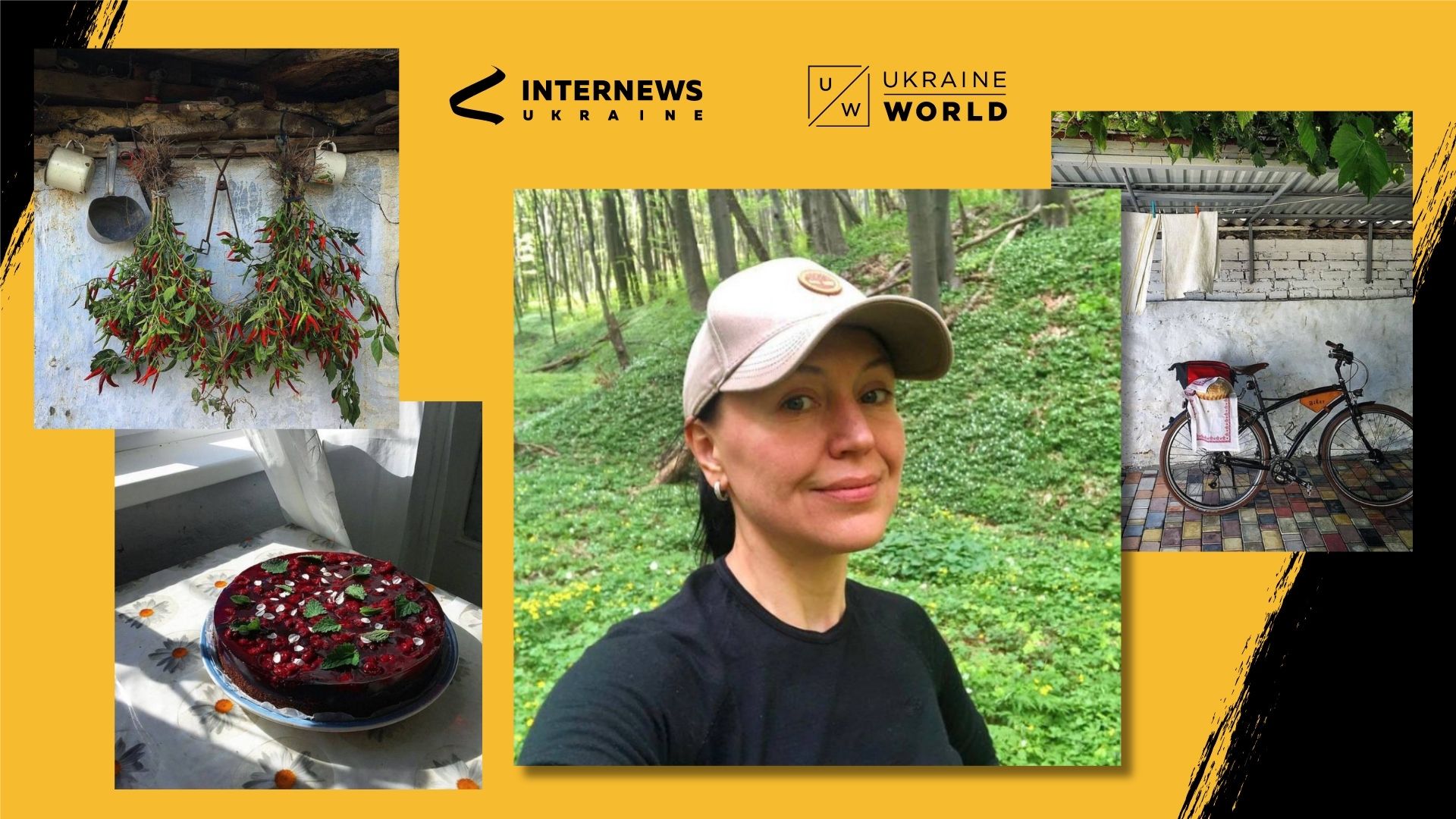
"Occupation is a nightmare all should run away from. It is the second worst thing after the war for me," Kateryna says now from her new life in Lviv. But it took great courage for her and her loved ones to escape.
Kateryna was 99% sure that war was waiting around the corner to start. With her documents packed and her car filled with gas, on February 22, she had already made an Instagram post denouncing Russia's aggression.
Little did she know that it hadn't yet revealed its full face, as it would on February 24.
There was this 1% of hope in her, that stopped the family from leaving until the first shots were heard. It turned out to be a big mistake.
My family and I were almost prepared to leave on the night the full-scale war began. However, a few hours after the explosions started, we found ourselves trapped under occupation.
Kateryna nearly lost her mind when she found it out. Leaving became extremely dangerous, but remaining in occupied Kakhovka felt absolutely unacceptable.
Amidst the never-ending flow of bad news and common confusion, a more urgent thing was emerging--- food was running out in Kakhovka. As an experienced baker, she came up with temporary salvation for the most vulnerable places.
"Locals asked me to help in a nursing home. There was a bakery that supplied bread to kindergartens, hospitals, and this nursing home. As a baker, I can manage with very little yeast or even without. So I made dough with a small amount of yeast, adding sourdough starter.
Almost every day, I prepared and carried around large bowls of dough. During each shift, the local baker and I baked up to 300 loaves of bread."
This work kept her attention for some time. But 'like a red thread,' the thought of leaving as soon as possible crossed her mind.
"I knew that the longer I stayed here, the more likely it was that I would either die or go crazy. I would swim away or ride away on a bicycle, but I would never submit to the occupation."
All materialistic belongings and even the city itself were devaluated at once. It felt to Kateryna as if they had already been stolen and spoiled by the enemy, and no longer belonged to her.
"There are no houses, property, or anything else that I would have to protect at the cost of my life. This is what I explained to my parents -- that walls have no meaning without you, and you always will, even without walls. Unfortunately, my parents still refused to go."
Kateryna's father suffered from Parkinson's disease, so her mother was afraid he wouldn't make it through the journey out of occupation. Unfortunately, he was unable to endure the occupation, either, and he died without Kateryna having a chance to say goodbye to him.
I will never forgive Russians for this. My mother was left alone during the occupation; my father passed away. Those were terrible, dark days. He was buried in the company of our relatives who remained under occupation, all elderly people. During those days, parents sent their children away but stayed themselves.
Thus Kateryna and her sister were sent away, too, after spending over a month in occupation. It was spring.
"Parents told us 'go yourselves,' but what did it mean? Driving at our own peril and risk. There were no green corridors, only a gray area. In fact, we were able to leave only thanks to people sharing their own experiences of departure in local groups."
They had a minibus to take them out, so they also took one more family with a one-year-old baby and two women with them. They also had three cats -- two belonging to Kateryna and one to her sister.
After reading threads about leaving the occupied zone, they purchased a carton of cigarettes. People wrote that it could increase the chances of a trouble-free departure. Whether it was the cigarettes or something else, they managed to get out relatively calmly.
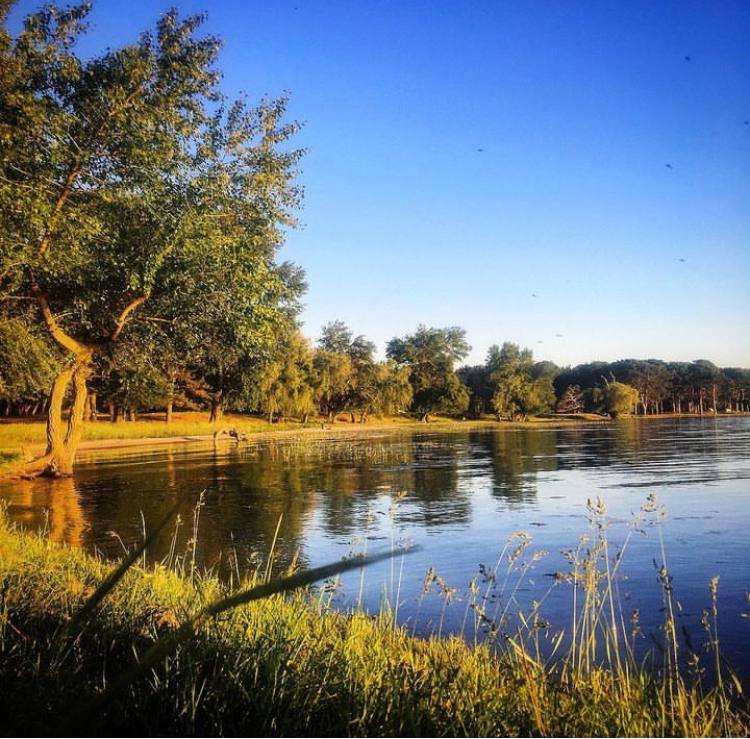
That was when Kateryna could finally breathe again. But not with full lungs, not yet, as her mother remained in occupied Kakhovka.
Her mother did not agree to leave until summer, when she had to endure dangerous heat and five days waiting in a queue of vehicles.
"People died in the car lines and were buried right in fields because there was nowhere else. There was no communication, so we didn't know where she was on her journey. Occasionally, somewhere, mobile connection appeared, and she wrote, 'I'm alive,' and that's all."
It took Kateryna's mother half of a year to get used to life in Lviv, a city familiar to them. Their relatives here gave them an apartment to live in for a while. As thankful as they were, nothing could compare to home.
Living in a rented apartment for over a year now, Kateryna fully furnished it herself as it was empty. Despite this, it still does not feel quite like home.
But, with her family as together as it can be, it's in recipes that Kateryna finds her Kakhovka, her Southern Ukraine. Sometimes, together with her mom, they recall old family recipes and cook like they used to in their summer kitchen.
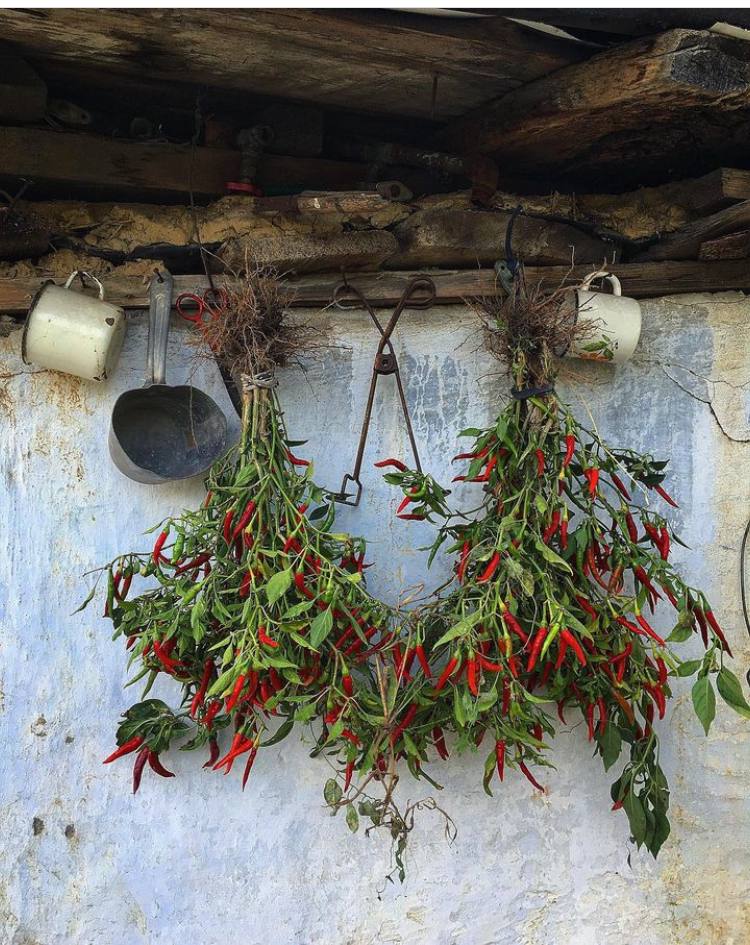
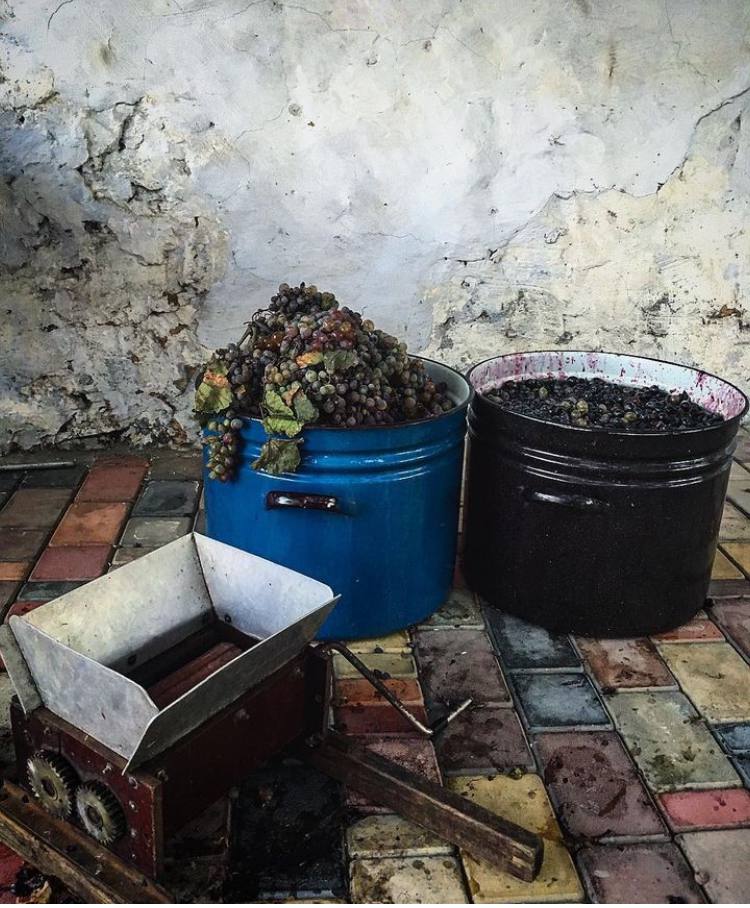
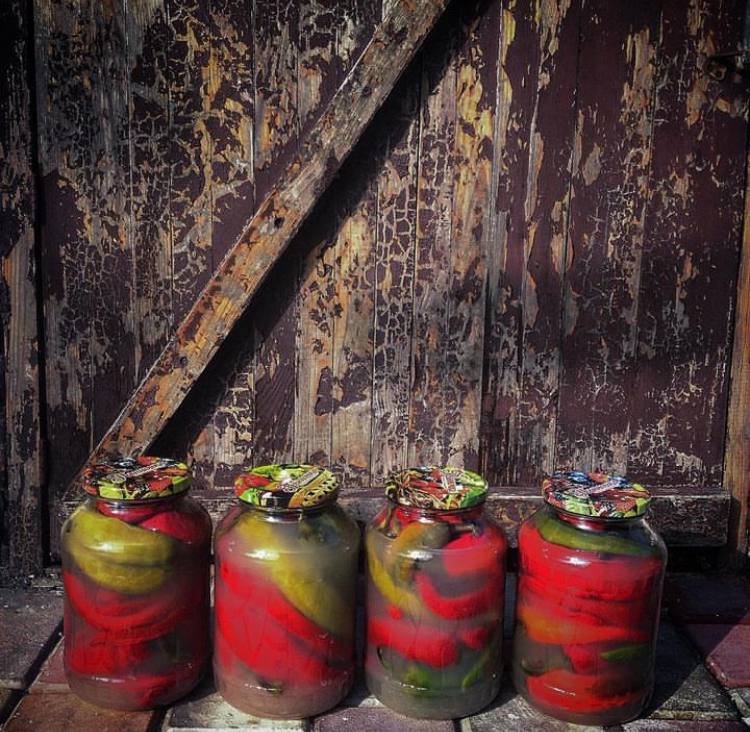
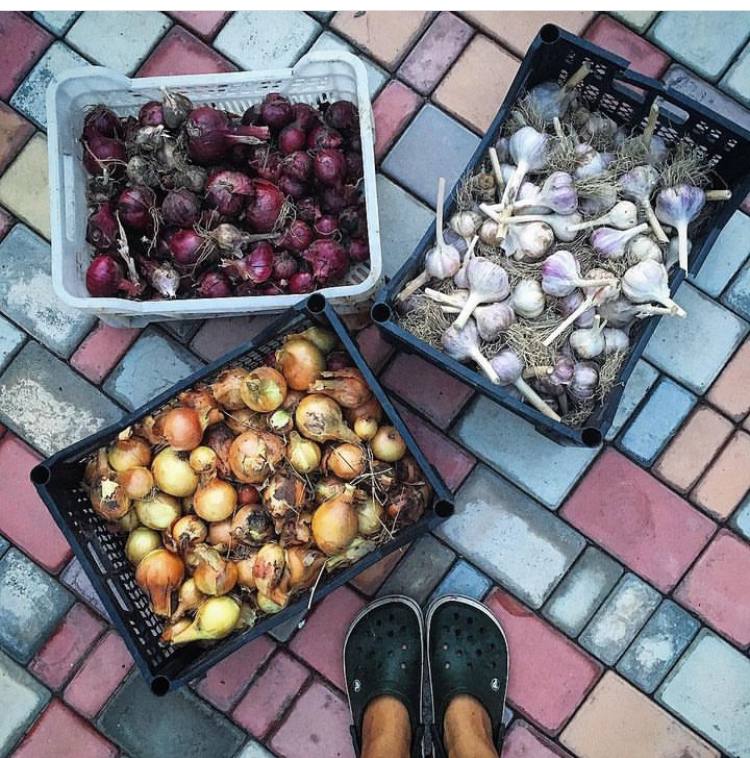
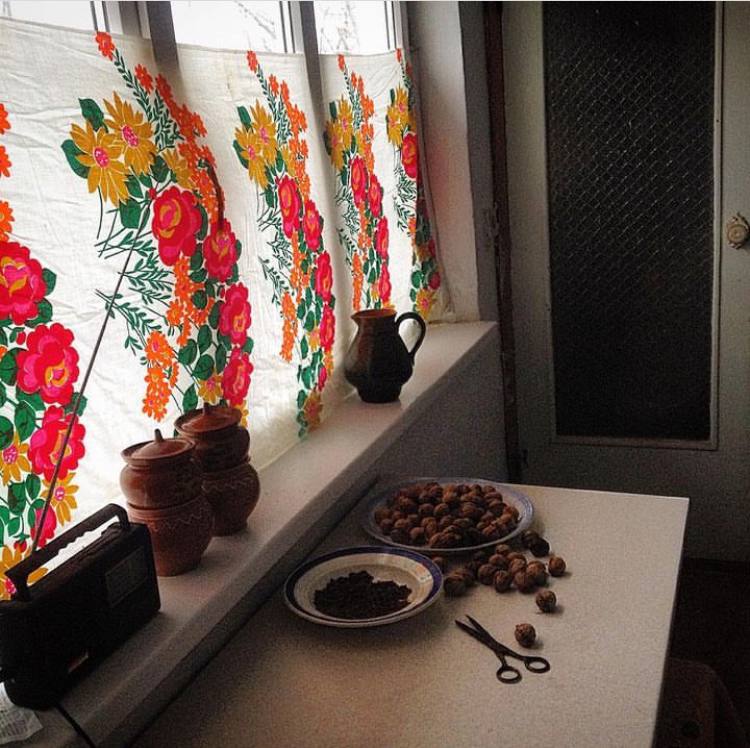
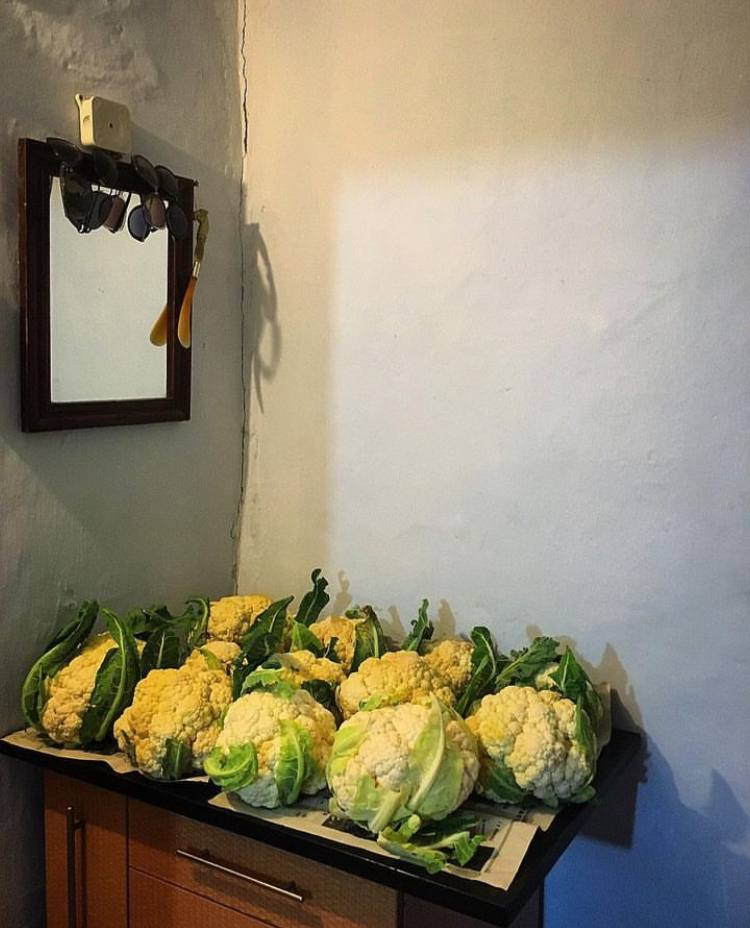
"When our grandmother passed away, her house, summer kitchen, and garden remained. My mother took care of the garden, and we helped her, but we especially cherished our summer kitchen. We spent countless hours there, surrounded by nature and near the garden.
It was the center of our activities. From preparing pickles for winter to spending time there between Easter and the Intercession of the Theotokos, the kitchen was the heart of our family life. We always found solace there---having picnics, barbecues, and everything we desired. Of course, I miss it dearly, as it represents not just a kitchen but a way of life, our beloved routine with all the memories of the past."
As part of the culinary community, Kateryna also shares her recipes and experience with passionate people in Lviv and via her cooking blog. This exchange, together with the process of cooking in general, is what keeps her from emotional exhaustion.
"Bread inspires. It gives me strength. I am with it from the moment of creation until it's passed on to other people. It is an endless magic that, even over the years, never ceases to amaze me. It's an endless source of inspiration."
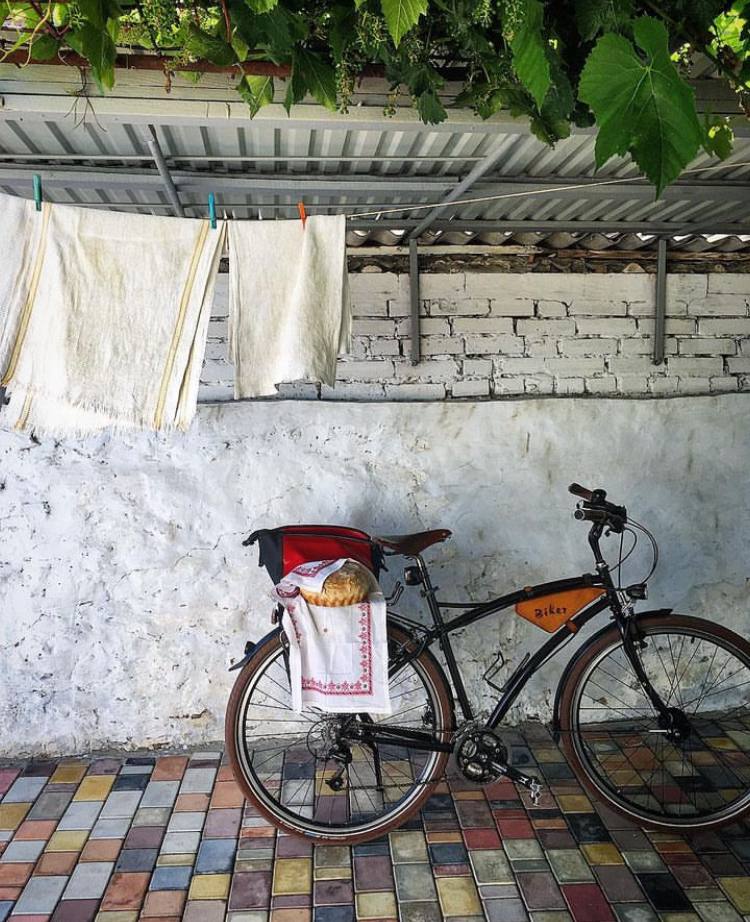
Thus, Kateryna loses the sense of this hard time in things she bakes and in the Ukrainian culinary traditions she keeps.
Yes, she misses her Dnipro River and its fish, her Sea of Azov, the salty air, the steppe, and many other things that made up her everyday life back home. But what she misses most is people, and the pain she feels from their suffering never eases.
"My people---my relatives and friends---remain under occupation, living with a constant, direct threat to their lives. They are very traumatized.
It's scary to imagine if you haven't experienced these conditions. I lived like this for 43 days, but they have endured it for 2 years.
During our conversations, they tell me that people die there every day. The occupation authorities relocated our hospital to another city, while the stress has worsened heart conditions among people I know. There's no one to help them. Two of our acquaintances have already died due to a lack of proper medical care."
Kateryna carries all of this with her, unable to ignore the wounds this deep. Deprived of the home, she knows how to surround herself at least with the feeling of it. That includes caring for those who are now far away, as it was when they all lived together in their peaceful Kakhovka, never wanting to leave, never suspecting life could turn this way.
